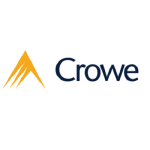An individual exercising an employment in Singapore will be taxed on the income attributable to that employment exercised in Singapore, unless any exemptions under domestic law or a relevant tax treaty applies.
To alleviate unintended tax consequences brought about by global travel restrictions, the Inland Revenue Authority of Singapore (IRAS) had provided a tax concession to exempt the employment income of Singapore citizens and Singapore permanent residents (SPRs), who were physically working overseas for foreign employers but had returned to and had to work remotely from Singapore for that same employment during 2020, due to COVID-19 travel restrictions.
This concession, which was originally valid until December 31 2020, was extended to June 30 2021. Beyond June 30 2021, the concession may still be applied, only on a case-by-case basis, if certain conditions are satisfied.
The IRAS also provided another concession to cover non-resident foreigners, who were on short-term business assignments in Singapore, pursuant to their overseas employment. This concession was valid up to December 31 2020.
Singaporeans and SPRs
Singaporeans and SPRs, who were working overseas but had returned to Singapore in 2020 and had to work remotely for their foreign employers because of COVID-19 travel restrictions, can be treated as not exercising employment for the period commencing from the date of return to Singapore in 2020, until the date of departure from Singapore that is no later than June 30 2021, if all the following conditions are satisfied with the relevant supporting documents:
(a) There is no change in the contractual terms governing the individual’s employment overseas before and after his or her return to Singapore;
(b) The work arrangement is temporary due to COVID-19;
(c) The work performed by the individual during his or her stay in Singapore would have been performed overseas if not for the travel restrictions caused by COVID-19;
(d) The individual has left Singapore as soon as he or she is able to do so, having made every effort to, before June 30 2021; and
(e) The employment income earned during the stay in Singapore from January 1 2021 to June 30 2021 is subject to tax in the country of the individual’s overseas employer.
If the individual had departed Singapore on or before December 31 2020, only conditions (a) and (b) need to be satisfied.
For a Singaporean or SPR, who has stayed and worked remotely from Singapore beyond December 31 2020 but is only able to satisfy conditions (a) and (b), only the employment income for the period of stay in Singapore up to December 31 2020 will not be taxable in Singapore.
Generally, an overseas-based Singaporean or SPR who has returned to Singapore and has been working remotely for his or her overseas employer in 2020 but has stayed beyond June 30 2021, will not be able to utilise the concession for the employment income earned in the year 2021.
The only exception is when the individual has continued to work remotely from Singapore due to the escalating COVID-19 situation in the country of his or her overseas employer, and there is an elevated risk of the individual contracting COVID-19 if he or she returns to work overseas. If so, condition (d) is not considered to be breached. Even then, the concession will only be applicable for employment income derived up to June 30 2021. Notwithstanding this, the IRAS may still consider, on a case-by-case basis, an individual as not exercising employment in Singapore beyond June 30 2021, under the following exceptional circumstances:
1. The overseas country where the individual is principally based to work has imposed a ban on the entry of travellers into the country or it is impossible to travel due to the unavailability of flights or other modes of transport; and
2. The individual will leave Singapore as soon as he or she is able to.
The IRAS has a prescribed list of information and documents that need to be submitted for their review, in order for them to continue according the concession to an individual who exercises employment in Singapore beyond June 30 2021, under the exceptional circumstances. The individual seeking to apply the concession will have to write in to the IRAS with the information and documents in the prescribed list.
It should be noted that the above-mentioned concession for Singaporeans and SPRs will not cover the following situations:
1. An overseas-based Singaporean or SPR who has returned in 2021 to remotely work from Singapore for his or her overseas employer; and
2. An individual who, while being physically present in Singapore, had taken up a new employment in 2020 with an overseas employer, and worked remotely in Singapore for the overseas employer.
However, with respect to point 2 in the previous paragraph, such individuals may still approach the IRAS, with supporting documents, to apply for the concession if it can be proven that the work arrangement is temporary due to COVID-19.
Non-resident foreigners
Recognising that there were non-resident foreigners who were in Singapore for business assignments in 2020 and may be stranded in Singapore due to travel restrictions then, there was also a concession to consider this group of individuals as not exercising employment in Singapore during the extended period of their stay in Singapore. To avail the concession, the following conditions must be satisfied:
The period of the extended stay is for a period of not more than 60 days; and
The work performed during the extended stay is not connected to the business assignment in Singapore and would have been performed overseas if not for COVID-19.
While the concession is only applicable for the period of extended stay in Singapore after the business assignment had ended, the employment income attributable to the business assignment period itself is taxable in Singapore, unless it relates to a short-term business assignment, or it could be exempt under a relevant tax treaty.
The Singapore domestic income tax law provides for a tax exemption on employment income attributable to a short-term business assignment in Singapore that is derived by a non-resident foreigner. A short-term business assignment is one that is not more than 60 days in a calendar year.
Unlike the concession for Singaporeans and SPRs that considers the remote working period until June 30 2021, the concession for non-resident foreigners, who are on short-term assignments in Singapore, is only for an extended stay in Singapore in 2020. Non-resident foreigners who have continued to work remotely in Singapore beyond 2020, will be subject to tax in Singapore, unless the tax exemption for short-term business assignments (as explained above) or a tax exemption under a relevant tax treaty can apply.
Non-resident professionals who are not employees and who have rendered their services in Singapore, will not be able to enjoy the concession. Singapore withholding tax applies on payments to non-resident professionals unless an exemption under a relevant tax treaty can be sought.
Tax treaties
In interpreting the provisions of Singapore’s tax treaties, the IRAS has clarified that references may be made to the ‘OECD secretariat analysis of tax treaties and the impact of the COVID-19 crisis,’ published by the OECD on April 3 2020 and the ‘Updated guidance on tax treaties and the impact of the COVID-19 pandemic,’ published by the OECD on January 21 2021.
Specifically, a non-resident employee may seek tax exemption in Singapore under a relevant tax treaty between his or her country of residence and Singapore. One of the conditions is that the individual must not be present in Singapore beyond a certain number of days.
In conjunction with the OECD’s updated guidance, the IRAS will disregard the period of extended stay in Singapore, subject to the non-resident employee fulfilling the following conditions:
1. He or she is prevented from leaving Singapore because:
(a) He/she is serving a COVID-19 quarantine order or stay-home notice; or
(b) The country of residence or the country where the non-resident employee is based or had made plans to travel to, has imposed a ban on the entry of travellers into that country; or
(c) It is impossible to travel due to unavailability of flights or other modes of transport; and
2. He or she would otherwise have left Singapore such that the employment activities would not have been carried out in Singapore; and
3. He or she is subject to tax in the country of residence on the employment income derived from the employment activities carried out in Singapore if, as a result of the period of extended stay in Singapore being disregarded, he or she was not taxed in Singapore on those income.
This will facilitate ascertaining whether the days of presence threshold provided in the relevant tax treaty provision applicable to employment income has been exceeded. The onus rests on the non-resident employee to maintain all relevant documentation and records as evidence that all the above conditions are satisfied, and provide the same upon the IRAS’ request.
Conclusion
Like any other cross-border movement of employees, there are other areas of tax risks associated with remote work. Overseas employers or foreign companies should also be mindful that their employees’ presence in Singapore may result in the creation of a permanent establishment in Singapore, which could then lead to corporate tax implications.
Sivakumar Saravan
Senior partner, Crowe Singapore
Liew Kin Meng
Director, Crowe Singapore













